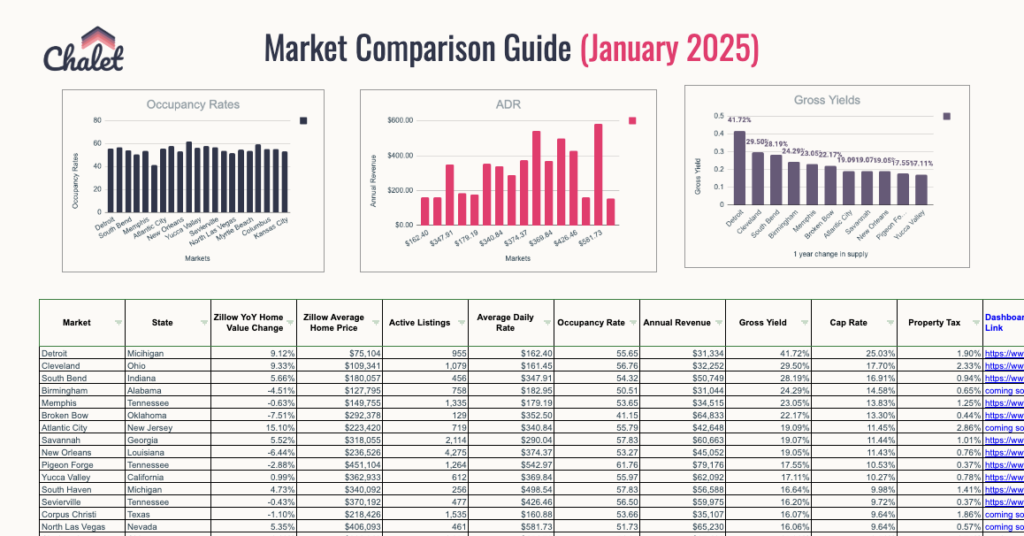Sarasota, Florida, known for its stunning beaches, vibrant arts scene, and warm weather, is a popular destination for tourists and vacationers. As a result, it has become a hotspot for short-term rentals, particularly through platforms like Airbnb. However, operating a short-term rental in Sarasota comes with a set of regulations that hosts must adhere to. This blog post will guide you through the essential aspects of Sarasota’s short-term rental regulations, ensuring you stay compliant while maximizing your rental income.
Understanding Sarasota’s Short-Term Rental Regulations
Sarasota’s regulations for short-term rentals are designed to balance the benefits of tourism with the need to maintain neighborhood integrity and safety. Here are the key points you need to know:
1. Zoning and Permits
Sarasota County has specific zoning laws that dictate where short-term rentals are allowed. In general, properties in residential zones require special permits to operate as short-term rentals. Before listing your property on Airbnb, it is crucial to verify its zoning designation and obtain the necessary permits. You can check zoning information through the Sarasota County Planning and Development Services.
2. Business Tax Receipt
All short-term rental operators in Sarasota must obtain a Business Tax Receipt (BTR), also known as an occupational license. This receipt is necessary for any business operating within Sarasota County and must be renewed annually. The application process for a BTR can be completed online through the Sarasota County Tax Collector’s website.
Top 100 Airbnb Rental Markets

Instantly compare top 100 short-term (Airbnb) rental markets in the US
3. Safety and Building Standards
Sarasota places a strong emphasis on safety for all short-term rental properties. Hosts must ensure their properties meet local building codes and safety standards. This includes having working smoke detectors, carbon monoxide detectors, and fire extinguishers. Additionally, properties should be well-maintained and comply with health and sanitation regulations.
4. Transient Rental Registration
In addition to the BTR, Sarasota requires short-term rental properties to register as transient rentals. This involves providing detailed information about the property and its owner, including contact information for someone available 24/7 to address any issues that may arise. This registration helps the county monitor and manage the impact of short-term rentals on the community.
5. Occupancy Limits
Sarasota enforces occupancy limits for short-term rentals to prevent overcrowding and ensure the safety of guests. Typically, the maximum occupancy is determined by the number of bedrooms and the overall size of the property. Hosts should clearly communicate these limits to guests and ensure compliance.
Compliance and Enforcement
Sarasota County actively enforces short-term rental regulations to ensure compliance. Non-compliance can result in fines, penalties, and even the suspension of your rental license. Common violations include operating without a permit, exceeding occupancy limits, and failing to meet safety standards. Therefore, it is essential to stay informed about local laws and maintain regular communication with county officials.
Resources for Airbnb Hosts in Sarasota
To help you navigate the complex landscape of short-term rental regulations in Sarasota, here are some valuable resources:
- Sarasota County Planning and Development Services: Zoning Information
- Sarasota County Tax Collector: Business Tax Receipt Application
- Sarasota County Fire Department: Safety Standards and Requirements
- Florida Department of Business and Professional Regulation (DBPR): Transient Rental Guidelines
Conclusion
Operating a short-term rental in Sarasota, FL, through platforms like Airbnb can be a profitable venture, but it requires careful adherence to local regulations. By understanding zoning laws, obtaining the necessary permits, and maintaining high safety standards, you can ensure your rental business runs smoothly and legally. Staying informed and proactive about compliance will not only protect you from fines and penalties but also contribute to the overall well-being of the Sarasota community.
By leveraging the resources provided and staying engaged with local regulatory updates, you can successfully navigate the landscape of short-term rental regulations in Sarasota. Happy hosting!
Sources:
- Sarasota County Planning and Development Services: Zoning Information
- Sarasota County Tax Collector: Business Tax Receipt Application
- Sarasota County Fire Department: Safety Standards and Requirements
- Florida Department of Business and Professional Regulation (DBPR): Transient Rental Guidelines

